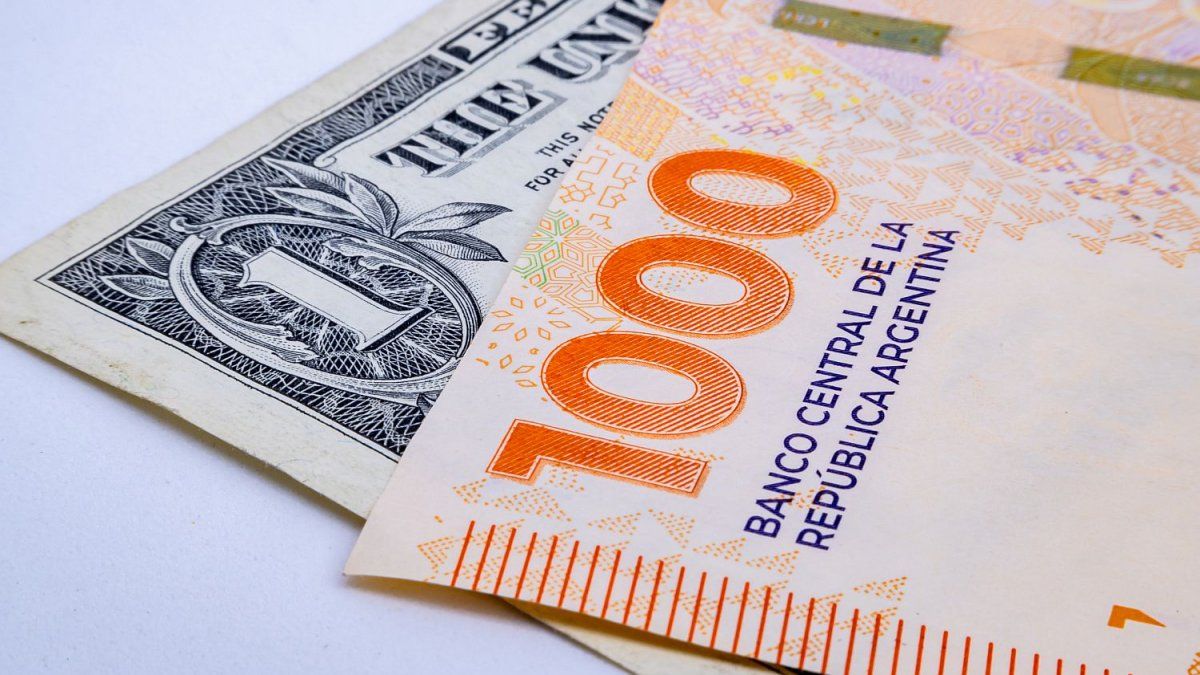The year 2024 marked an economic milestone in Argentina: the Argentine peso experienced an unprecedented appreciation, positioning itself as the currency that strengthened the most worldwide, with an increase in 44.2% against a basket of inflation-adjusted currencies, according to an analysis by the Financial Times (FT). This phenomenon, driven by the economic policy of the government of Javier Mileigenerated both optimism and concern, evidencing crucial challenges for the monetary policy of the Central Bank (BCRA) and the competitiveness of the Argentine economy.
While some sectors celebrate the stability that a strong exchange rate provides, others warn about the tensions it generates, especially in exports and the sustainability of the current exchange rate scheme.
The immediate benefits of a strong weight
The strengthening of the peso brought certain relief for Argentine consumers. According to the Financial Times, the wages registered averages almost doubled in dollars during the year, reaching $990 in October 2024. This allowed the middle class to access imported goods at lower prices and plan trips abroad more easily, generating a perception of economic stability.
This scenario also had a positive impact on the exchange gapwhich was significantly reduced from 200% in December 2023 at less than 20% by the end of 2024. Policies such as allowing exporters to settle part of their income in the parallel market helped build confidence in the government’s monetary scheme.
In addition, key sectors such as agricultural exports maintained their historical average, according to Ezequiel de Freijo, chief economist of the Argentine Rural Society. These measures appear to be aligned with Milei’s intention to project an image of economic stability.
A double-edged sword: the loss of competitiveness
However, The benefits of a strong weight are not without significant costs. The increase in the price of Argentine products in dollars affects the competitiveness of key export sectors. According to the FT, companies like Ternium have warned that labor costs in Argentina are a 60% higher than those of Brazil, which harms the country’s ability to compete in international markets.
Furthermore, the depreciation of the Brazilian real, Argentina’s main trading partner, adds pressure to this dynamic. According to Ramiro Blázquez, head of research at BancTrust, if the peso continues to appreciate or if a significant external shock arises, such as a rapid devaluation of the real or the increase in tariffs in the United States under the Donald Trump administration, demand for dollars could increase. cheap and with it the risk of a sudden devaluation.
The challenge of the Central Bank: maintaining balance
The BCRA’s monetary policy faces a complex crossroads. The organization has actively intervened to keep the exchange rate stable, but this has involved a significant expenditure of international reserves. According to the FT, the Central Bank’s reserves still need to be rebuilt to sustain long-term economic stability, and the government is betting on a boom in lithium, oil and gas exports to achieve this.
In addition, President Milei has promised a unification of the exchange market and the total elimination of the stocks by the end of 2025. Although these measures could generate confidence in the market, they also represent a risk if the necessary fiscal reforms are not consolidated or if the international context becomes unfavorable.
Economist Nicolás Dujovne, former Minister of Finance, pointed out that the sustainability of a strong peso will depend on the government’s ability to maintain structural reforms and market confidence. However, he described this strategy as “an increasingly demanding game,” as pressure increases on the implementation of measures that strengthen the competitiveness of the economy.
An uncertain future: risks and opportunities
The appreciation of the peso also raises questions about the sustainability of the trade surplus. Historically, Argentina has failed to maintain a surplus with such a strong exchange rate. Although the government relies on the rise of sectors such as mining and energy to sustain exports, analysts such as Martín Rapetti warn that these incomes would not be enough to balance the trade balance, especially if significant improvements in productivity are not generated.
Furthermore, the FT highlights that the real challenge will come when the peso floats freely after the elimination of the stocks. In that scenario, foreign exchange policy could face internal and external pressures that could trigger a currency crisis if not managed carefully.
Source: Ambito
I am a 24-year-old writer and journalist who has been working in the news industry for the past two years. I write primarily about market news, so if you’re looking for insights into what’s going on in the stock market or economic indicators, you’ve come to the right place. I also dabble in writing articles on lifestyle trends and pop culture news.



